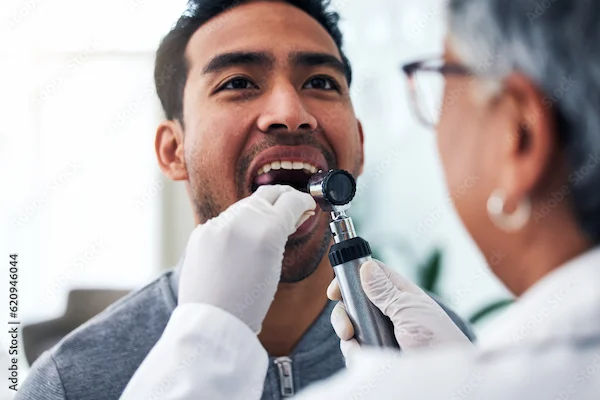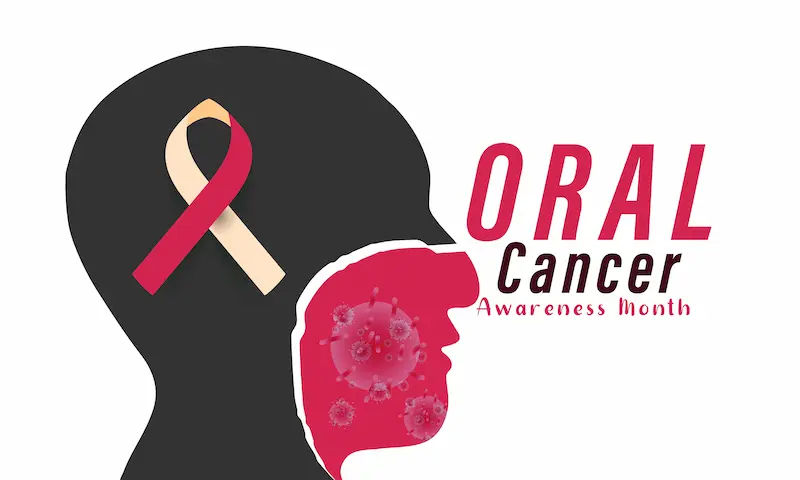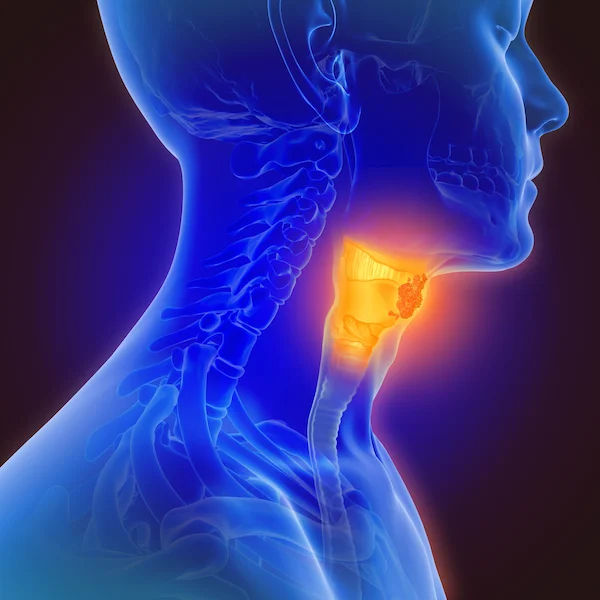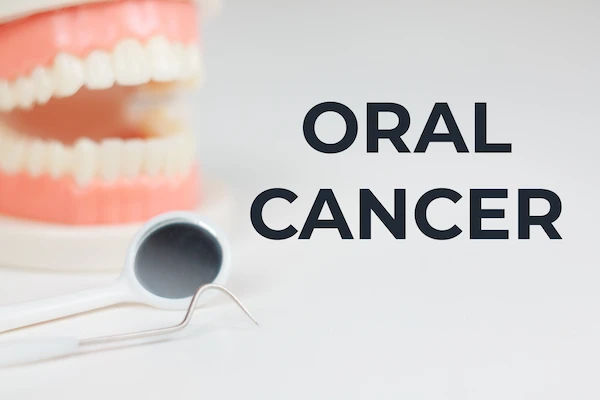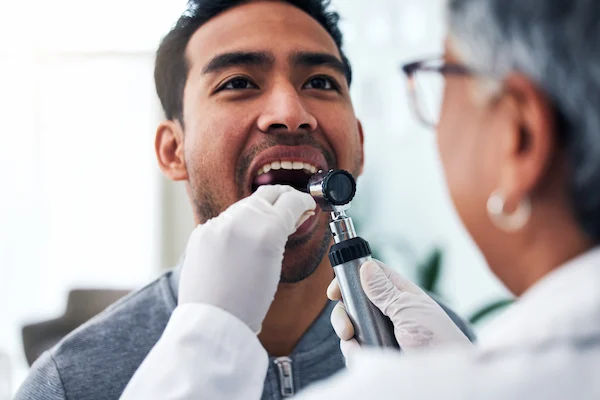What Leads To Signs Of Oral Cancer And Treatments
Learn about the signs, causes, and effective treatments for oral cancer. This guide provides essential information to help you understand what leads to this condition and how to seek timely care.

.webp?tr=q-80,f-webp,w-350,dpr-2,c-at_max 700w)
Introduction
Oral cancer, a term that encompasses cancers of the mouth and the very back of the throat (oropharynx), is a significant health concern worldwide. Spotting the signs early is the single most important factor in successful treatment and survival. This article provides a comprehensive guide to understanding what leads to oral cancer, the critical warning signs you should never ignore, and the advanced treatment options available today. We'll break down the risk factors, from tobacco use to the HPV virus, and walk you through the diagnostic process. Most importantly, we'll empower you with knowledge on prevention and the importance of early detection. If you notice any persistent changes in your mouth, consulting a doctor online with Apollo24|7 for an initial evaluation can be a crucial first step.
What is Oral Cancer?
Oral cancer refers to the uncontrollable growth of cells that invades and causes damage to surrounding tissues in the oral cavity. This includes your lips, cheeks, teeth, gums, the front two-thirds of your tongue, the floor and roof of your mouth. Oropharyngeal cancer affects the tonsils and the base of the tongue. Over 90% of all oral cancers are classified as squamous cell carcinomas, meaning they begin in the flat, thin cells (squamous cells) that line the mouth and throat.
Defining Oral Cavity and Oropharyngeal Cancers
While often grouped together, there's a key distinction. Oral cavity cancers are more directly linked to traditional risk factors like tobacco and alcohol. Oropharyngeal cancers, particularly those at the base of the tongue and tonsils, are increasingly linked to the human papillomavirus (HPV), which has changed the profile and treatment of these cancers in recent years.
Early Warning Signs: Don't Ignore These Symptoms
Early detection dramatically improves outcomes. Knowing what to look for during a self-exam is vital.
Common Visual and Physical Signs
- A sore or ulcer that does not heal within two weeks.
- Red (erythroplakia) or white (leukoplakia) patches on the gums, tongue, tonsils, or lining of the mouth.
- A lump or thickening in the cheek, neck, or a feeling of something caught in the throat.
- Unexplained bleeding, numbness, or pain/tenderness in the mouth.
Symptoms You Might Feel
- Persistent sore throat or hoarseness that doesn't go away.
- Difficulty chewing, swallowing, or moving the jaw or tongue.
- Ear pain on one side.
- A change in your voice or slurred speech.
- Unexplained weight loss.
When to Absolutely See a Doctor
If any of these early signs of mouth cancer persist for more than two weeks without a clear cause (like a bitten cheek), it is not something to "wait out." If symptoms persist beyond two weeks, consult a doctor online with Apollo24|7 for further evaluation. They can assess your symptoms and advise if an in-person visit with a specialist is needed.
What Leads to Oral Cancer? Key Risk Factors Explained
While the exact cause of the cellular mutation is not always clear, several well-established risk factors significantly increase the odds.
Tobacco Use: The Primary Culprit
This is the most significant risk factor. Whether smoked (cigarettes, cigars, pipes) or smokeless (chewing tobacco, snuff), tobacco exposes the cells in your mouth to a cocktail of carcinogens. Up to 85% of oral cancer cases are linked to tobacco use.
Consult Top Specialists
Human Papillomavirus (HPV): A Growing Concern
Infection with certain strains of HPV, particularly HPV16, is a leading cause of HPV-related oropharyngeal cancers. This virus is sexually transmitted. This type of cancer often affects younger, non-smoking individuals and has a different prognosis and treatment response.
Heavy Alcohol Consumption
Alcohol acts as a solvent, helping harmful chemicals in tobacco to penetrate the cells in the mouth. When combined with tobacco, the risk isn't just added—it's multiplied.
Prolonged Sun Exposure and Lip Cancer
Frequent, unprotected exposure to ultraviolet (UV) light from the sun is a major cause of cancer on the lips, especially the lower lip.
Other Contributing Factors
These include a diet low in fruits and vegetables, a weakened immune system, chronic irritation from ill-fitting dentures, and a family history of cancer. Age and gender (men are twice as likely as women to develop it) also play a role.
How is Oral Cancer Diagnosed?
A timely and accurate diagnosis is critical for planning effective oral cancer treatment.
The Initial Screening and Physical Exam
A doctor or dentist will examine your entire mouth, looking for sores, white patches, or red patches. They will feel lumps in your neck, lips, gums, and cheeks.
The Biopsy: Confirming a Diagnosis
If a suspicious area is found, a biopsy is essential. A small sample of tissue is removed and sent to a pathologist to check for cancer cells. This is the only definitive way to diagnose oral cancer.
Imaging Tests: CT, MRI, and PET Scans
Once cancer is confirmed, imaging tests help determine the stages of tongue cancer or other oral cancers—specifically, the tumor's size and whether it has spread (metastasized) to lymph nodes or other parts of the body. This information is crucial for staging.
Staging Oral Cancer: What Does It Mean?
Staging describes the severity of the cancer based on the size of the tumor and the extent of its spread.
The TNM Staging System Simplified
- T (Tumor): How large is the primary tumor?
- N (Node): Has the cancer spread to nearby lymph nodes?
- M (Metastasis): Has the cancer metastasized to other parts of the body?
- Stages range from 0 (carcinoma in situ, very early) to IV (advanced, spread to other areas). The stage guides the treatment approach and helps discuss prognosis.
Modern Oral Cancer Treatment Modalities
Treatment is highly personalized and often involves a multi-disciplinary team of surgeons, oncologists, and dentists. The plan depends on the cancer's location, stage, and the patient's overall health.
Surgery: Removing the Tumor
- The goal is to remove the cancerous tumor and a margin of healthy tissue around it to ensure all cancer cells are gone.
- H4: Types of Surgical Procedures: This can range from a simple excision for small tumors to more complex procedures like a glossectomy (removing part of the tongue), mandibulectomy (removing part of the jawbone), or a neck dissection to remove lymph nodes.
Radiation Therapy: Targeting Cancer Cells
High-energy beams, like X-rays or protons, are used to kill cancer cells. It's often used after surgery to destroy any remaining cells or as the primary treatment for some early-stage cancers.
Chemotherapy: Systemic Treatment
Chemotherapy uses powerful drugs to kill cancer cells throughout the body. It's often combined with radiation therapy (chemoradiation) for more advanced cancers.
Targeted Drug Therapy
This is a type of targeted therapy for head and neck cancer that attacks specific weaknesses within cancer cells. For example, drugs like Cetuximab target a protein on the surface of cancer cells that helps them grow.
Immunotherapy: Harnessing the Body's Defenses
Immunotherapy helps your immune system recognize and fight cancer cells. It's often used for recurrent or metastatic cancers that haven't responded to other treatments.
Managing Side Effects and Life After Treatment
Recovery after oral cancer surgery and other treatments can be challenging. Common side effects of radiation for mouth cancer include dry mouth (xerostomia), difficulty swallowing, tooth decay, and fatigue.
Nutritional Support and Speech Therapy
A dietitian can help with meal plans for those with chewing or swallowing difficulties. Speech therapists are crucial for rehabilitating speech and swallowing functions if the tongue or throat is affected.
Dental Rehabilitation and Follow-Up Care
Dental care before, during, and after treatment is vital to protect oral health. This includes meticulous oral hygiene and regular follow-up appointments for years to monitor for recurrence.
Can Oral Cancer Be Prevented?
While not all cases are preventable, you can drastically reduce your risk:
- Don't use tobacco in any form.
- Drink alcohol only in moderation, if at all.
- Get vaccinated against HPV. The HPV vaccine can prevent the strains linked to oral cancers.
- Protect your lips from the sun with a broad-spectrum sunscreen lip balm and wear a wide-brimmed hat.
- Eat a diet rich in fruits and vegetables.
- See your dentist regularly for check-ups, which include an oral cancer screening.
Quick Takeaways
- Act Early: Any sore, patch, or lump in your mouth that doesn't heal in two weeks warrants a doctor's visit.
- Know the Risks: Tobacco and heavy alcohol use are the top risk factors, but HPV is a significant and growing cause.
- Diagnosis is Key: A biopsy is the only way to confirm oral cancer. Imaging tests then determine the stage.
- Treatment is Multimodal: It often involves a combination of surgery, radiation, and sometimes chemotherapy, targeted therapy, or immunotherapy.
- Prevention Works: Quitting tobacco, moderating alcohol, getting the HPV vaccine, and sun protection are your best defenses.
- Rehabilitation is Part of Healing: Speech therapy and nutritional support are critical for quality of life after treatment.
- Regular Check-ups Save Lives: Dentists and doctors can often spot early signs before you even notice them.
Consult Top Specialists
Conclusion
Understanding the signs, causes, and treatments for oral cancer empowers you to take charge of your health. Early detection is not just a buzzword; it is the most powerful tool in achieving a positive outcome. The landscape of oral cancer treatment has evolved significantly, with more targeted and effective options available than ever before. While the journey can be difficult, a strong support system and a dedicated medical team make a world of difference. Be proactive about your oral health, perform regular self-exams, and never hesitate to seek professional advice for any persistent changes. Your vigilance could make all the difference. If your condition does not improve after trying these methods, book a physical visit to a doctor with Apollo24|7 for a comprehensive examination.
Consult Top Specialists

Dr. Anand Misra
General Physician/ Internal Medicine Specialist
14 Years • MBBS, DNB
Mumbai
Apollo Hospitals CBD Belapur, Mumbai

Dr P Jagadeesha Chandra
General Physician/ Internal Medicine Specialist
37 Years • MBBS, MD
Bengaluru
Apollo Hospitals Jayanagar, Bengaluru

Dr. Aakash Garg
Gastroenterology/gi Medicine Specialist
12 Years • MBBS, DNB (Medicine), DrNB (Gastroentrology).
Bilaspur
Apollo Hospitals Seepat Road, Bilaspur
(150+ Patients)

Dr. Nirmal Mathew Alex
General Physician/ Internal Medicine Specialist
17 Years • MBBS, MD(general medicine)
Angamaly
Apollo Hospitals Karukutty, Angamaly
(50+ Patients)

Dr. Jyotish R Nair
General Physician/ Internal Medicine Specialist
22 Years • MBBS, MD (General Medicine), PG Diploma(Diabetology)
Angamaly
Apollo Hospitals Karukutty, Angamaly
(150+ Patients)
Consult Top Specialists

Dr. Anand Misra
General Physician/ Internal Medicine Specialist
14 Years • MBBS, DNB
Mumbai
Apollo Hospitals CBD Belapur, Mumbai

Dr P Jagadeesha Chandra
General Physician/ Internal Medicine Specialist
37 Years • MBBS, MD
Bengaluru
Apollo Hospitals Jayanagar, Bengaluru

Dr. Aakash Garg
Gastroenterology/gi Medicine Specialist
12 Years • MBBS, DNB (Medicine), DrNB (Gastroentrology).
Bilaspur
Apollo Hospitals Seepat Road, Bilaspur
(150+ Patients)

Dr. Nirmal Mathew Alex
General Physician/ Internal Medicine Specialist
17 Years • MBBS, MD(general medicine)
Angamaly
Apollo Hospitals Karukutty, Angamaly
(50+ Patients)

Dr. Jyotish R Nair
General Physician/ Internal Medicine Specialist
22 Years • MBBS, MD (General Medicine), PG Diploma(Diabetology)
Angamaly
Apollo Hospitals Karukutty, Angamaly
(150+ Patients)
More articles from Oral Cancer
Frequently Asked Questions
What does the earliest stage of mouth cancer look like?
The earliest stage might look like a small, pale, or darkened patch that is smooth or rough. It often appears as a white patch (leukoplakia) or a red patch (erythroplakia) that doesn't go away. A non-healing sore is also a common early sign.
Is oral cancer curable if found early?
Yes. When oral cancer is detected at an early stage (Stages I and II), the cure rates are significantly higher, often exceeding 80%. This highlights the critical importance of early detection and prompt treatment.
How can I check myself for oral cancer?
In a well-lit room, use a mirror to look and feel inside your lips, gums, cheeks, and the roof and floor of your mouth. Pull out your tongue and check all sides. Feel for lumps in your neck and jaw area. Look for any color changes, sores, or patches.
What is the main cause of oral cancer today?
While tobacco remains a leading cause, infection with the human papillomavirus (HPV) is now a primary cause of cancers in the tonsils and the base of the tongue (oropharyngeal cancers), especially in younger individuals.
How long is recovery from oral cancer surgery?
Recovery after oral cancer surgery varies widely depending on the procedure's extent. Initial hospital recovery may take a few days to a week, but full recovery, including healing, adapting to dietary changes, and speech therapy, can take several weeks to months.
